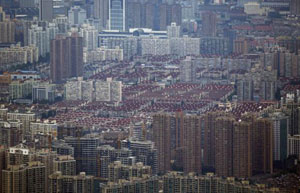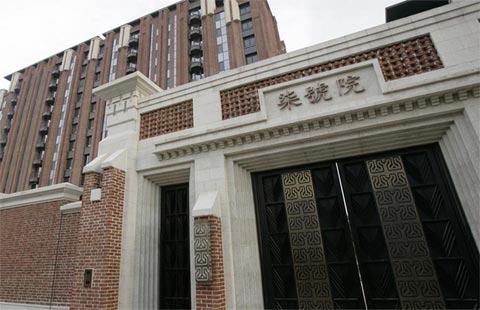Builders turn to overseas bond investors
By Wu Yiyao in Shanghai (China Daily) Updated: 2014-06-05 06:51With domestic funding sources shrinking, market insiders said, developers are scrambling to offer high-yield dim sum bonds (yuan-denominated debt issued abroad) to take advantage of robust demand for yuan assets. Most of the bonds were sold to Asian fund managers, although private bank investors and banks have taken about 25 percent of this debt.
The recent insolvency of Ningbo-based Zhejiang Xingrun Real Estate Co raised worries among some investors that China's developers may face broader solvency problems, but analysts said big players in the market are less likely to default, and the high-yield bonds they offer are still good to buy.
Xingrun's problems weren't surprising, given that it's a private developer of relatively small size whose debts outweighed its assets, said Wallace Lam, an analyst with HSBC Holdings Plc.
"China has more than 10,000 developers, and if we look at the top 50, many of which offer bonds, they are doing well," said Lam.
Most rated developers are more resilient than the nationwide average, as reflected by annual growth in contracted sales, the report said.
The growth potential for megadevelopers in the "BBB" category is more limited, and smaller developers whose debt has been rated display more volatile sales performance and more vulnerability to the overall macroeconomic environment, it said.
Most notably, developers in the "BB" category performed the best, probably because most have reached the critical scale to achieve superior management, execution and corporate governance compared with their competitors in the "B" category, the ratings agency said.
Developers that offer bonds overseas may experience less solvency pressure, and considering that bonds issued by China's rated developers haven't experienced any defaults, the homebuilder bond market is steady and performing well, according to Wang Ying, an analyst at Fitch Ratings.
|
 |
 |
| Local govts limit discounts on property prices | China Vanke says property sector's 'golden era' over |
- Guangdong to deepen financial reforms
- Luxury hotel 'floats' in Chongqing
- Construction started on 2.86m affordable homes
- China to issue 40b yuan in e-savings bonds next week
- US ruling ignites fresh solar row
- Lenovo hopes cyber-trust issues won't derail IBM deal
- Diplomat calls for making 'connectivity' a priority
- Alibaba preps employees for $40b windfall

















